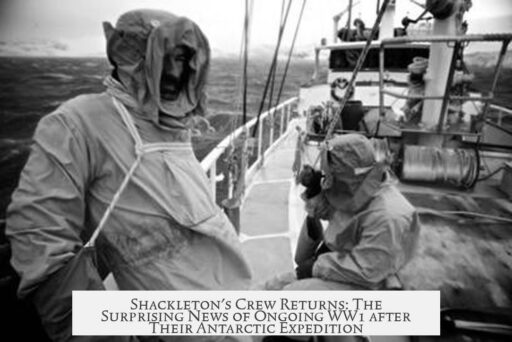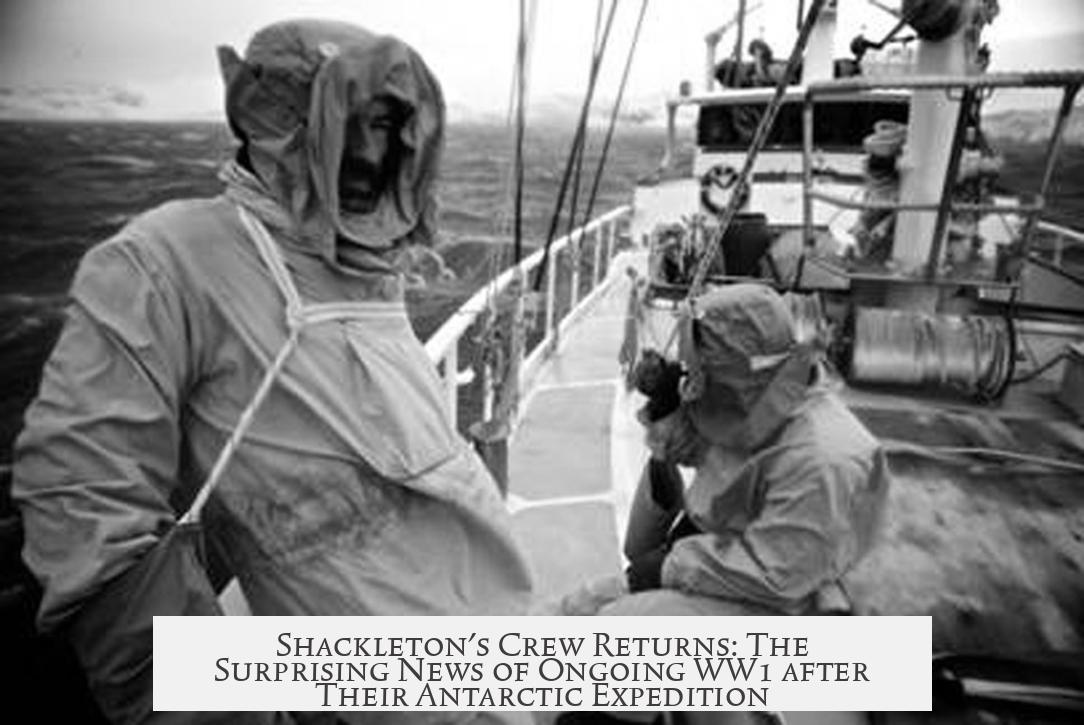Ernest Shackleton’s crew was indeed surprised to learn that World War I was still ongoing when they returned from their Antarctic expedition. After enduring extreme hardship, their first question upon reaching civilization in May 1916 was about the war’s status. Shackleton famously asked the Norwegian whaling station manager, “Tell me, when did the war end?” This indicates their uncertainty and hope that the conflict might have concluded during their long ordeal.
The expedition had begun just days before the war started in August 1914. Shackleton’s ship, Endurance, became trapped and was eventually crushed by pack ice in early 1915. The crew spent months stranded on ice floes before reaching Elephant Island by April 1916. Shackleton’s daring journey to South Georgia Island brought them to a whaling station in May 1916, where they first encountered civilization again.
At the whaling station, the crew learned that the war was not only ongoing but had escalated dramatically. The station manager described the vast scale of the conflict, the massive casualties, and technological advances in weaponry such as poison gas and aerial combat. To the men, who had been isolated from all news and engaged primarily in survival, these facts were shocking and difficult to comprehend.
Despite the overwhelming news about the war, the crew still faced urgent survival challenges. Their immediate concern was rescuing their stranded shipmates on Elephant Island, which underscored a strong separation between their personal crisis and the distant global conflict.
This moment highlighted how isolated Shackleton’s expedition had been and how dramatically the world had changed in just under two years. The crew’s reaction reveals both their disbelief and the emotional impact of returning to a world at war after such an extended absence.
- Shackleton’s crew left London just before WWI started in August 1914.
- The Endurance was trapped and destroyed by ice by late 1915.
- The crew returned to civilization in May 1916, asking if the war had ended.
- They learned the war was ongoing, with unprecedented casualties and new warfare technologies.
- The crew balanced shock about the war with urgent efforts to rescue crewmates.
When Ernest Shackleton’s Crew Returned After Their Expedition to Antarctica, Were They Surprised That WW1 Was Still Ongoing?
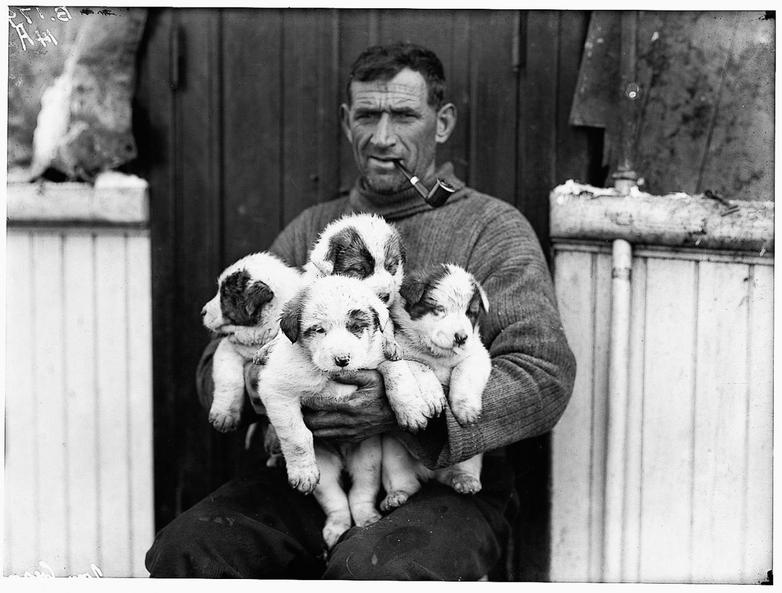
Absolutely, Shackleton and his crew were genuinely surprised that World War I was still raging when they finally emerged from their Antarctic ordeal. Imagine leaving London on August 1, 1914, with grand ambitions to explore the frozen continent and then reappearing more than a year later, only to find the world embroiled in unprecedented chaos. The story of Ernest Shackleton’s Endurance expedition is as gripping for its survival drama as for the shock the crew felt upon learning about the scale and brutality of the Great War.
The Endurance set sail right as Europe ignited in flames. By the time they faced the dreaded Antarctic pack ice in January 1915, the war was picking up speed thousands of miles away. But for them, trapped and isolated, the modern horrors of the trenches and skies were invisible.
Shackleton’s Timing: Between Ice and War
Starting an expedition during the dawn of WWI was, well, less than ideal. Shackleton’s expedition began with two teams: his own on the Endurance, navigating the Weddell Sea side, and another team traveling via the ship Aurora near the Ross Sea. Their goal was bold: traverse Antarctica and lay supply depots for Shackleton’s party’s inland journey.
But fate had other plans. In January 1915, the relentless Antarctic pack ice gripped the Endurance like a giant frozen hand, and no release came. The ship was crushed and sank in November 1915, forcing the crew onto the ice with only three lifeboats and their will to survive.
Months passed in this harsh, frozen exile. On April 9, 1916, the ice finally relaxed enough for Shackleton and his men to launch the lifeboats. They braved treacherous seas and reached Elephant Island on April 15. From there, Shackleton courageously set off with four men for a 200-mile journey to South Georgia Island, arriving at a whaling station on May 17, 1916.
The Shocking Reality Check at the Whaling Station
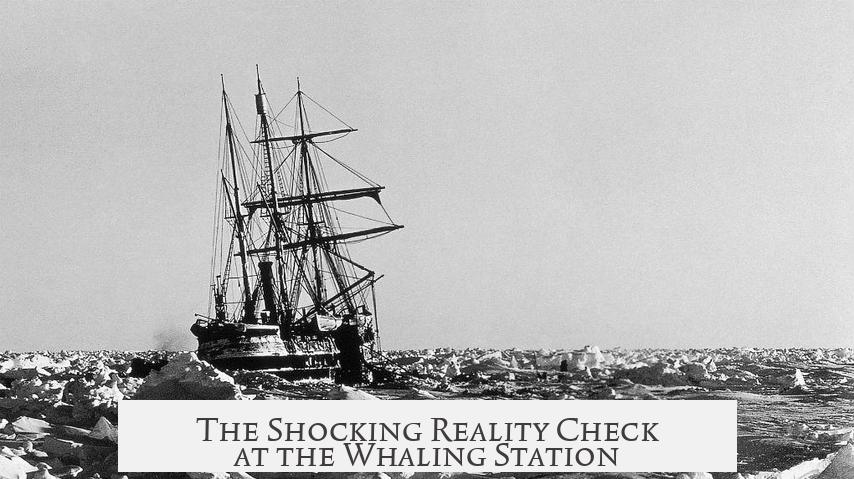
Shackleton’s very first question to the Norwegian whaling station manager jolts the imagination. After introducing himself, Shackleton asks, “Tell me, when did the war end?” This simple yet stark question underscores just how disconnected the crew had become from the outside world during their survival ordeal.
The manager’s reply? A grim reminder that the war was far from over: “The war is not over. Millions are being killed. Europe is mad. The world is mad.” That blunt confirmation plunged Shackleton and his men back into reality in one brusque moment.
How Did Shackleton’s Crew Digest This Shocking News?
Roland Huntford, a respected historian, comments on the crew’s reaction. They struggled to understand the sheer magnitude of the slaughter unfolding in Europe. It was beyond their comprehension, this industrial scale of killing. Even more bewildering were the new forms of warfare like poison gas and aerial bombardments that had transformed conflict into something nightmarish.
Their Antarctic trial, brutal and primitive, now seemed a stark contrast to the mechanized carnage tearing through Europe. Astonishingly, they had been living through the early years of WW1’s deadliest phase, but only just connected to it.
The War’s Irony: Rescuing Comrades While a World War Fought On
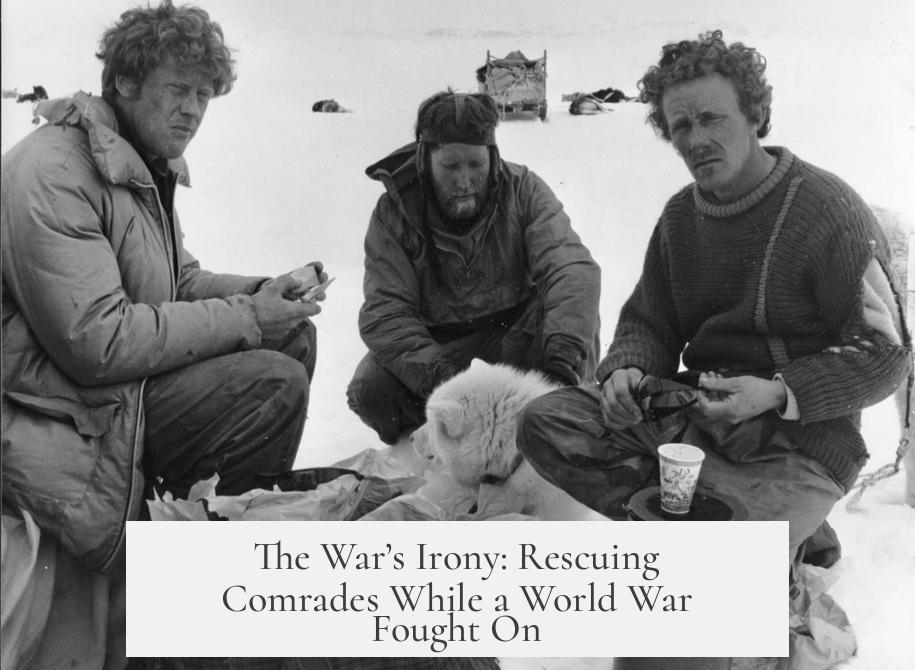
Though the horror of WW1 was monumental, the crew’s immediate focus remained on survival and rescue. The war’s distant thunder felt unreal alongside the urgent need to save their stranded comrades on Elephant Island. Shackleton’s leadership ensured the men’s safety took precedence above all else.
One can only wonder: would the crew have had the strength to face Antarctica’s ruthless conditions if weighed down by the weight of global conflict? Possibly yes, but their isolation paradoxically shielded them from despair about the world’s madness until their return.
What Can We Learn From Shackleton’s Expedition and Their Wartime Awakening?
- Isolation distorts perspective. Shackleton’s men left a world on the brink of war and returned to a planet in chaos, demonstrating how disconnected environments can warp time’s meaning.
- Survival absorbs all focus. Even colossal events like WW1 fade when basic life and rescue are priorities.
- Human resilience shines. Despite the news and dangers, Shackleton’s crew endured and adapted endlessly.
Next time you find yourself obsessed with global news, consider Shackleton’s crew—who lived through one of history’s bleakest expeditions only to pop back into civilization amazed it was still at war. They remind us how bizarre our comprehension of time and events becomes when battling nature’s extremes.
Practical Takeaways for Modern Explorers and Information Seekers
Disconnection from world events isn’t necessarily ignorance; it can be survival. Yet, it also sharpens our ability to re-enter the “real” world with fresh perspective. When isolated, focus on essentials. When reunited, face truth head-on. Shackleton’s journey encourages us to balance endurance with awareness.
Plus, the story pokes fun at our modern fear of missing out. Lost in icy oblivion, Shackleton’s band missed giant battles, new weapons, and millions of casualties—but not a single moment of human courage or resilience. Their tale is one of survival on multiple levels.
So next time you wonder about the connection between exploration and history, remember Shackleton’s crew was indeed startled by WW1 still being ongoing—but they took the news in stride, embodying the essence of leadership and adaptability.
Q1: Did Shackleton know World War I had started when he left on his expedition?
Shackleton’s team left London on August 1, 1914, just as World War I began. They departed unaware of how long and devastating the war would become.
Q2: How did Shackleton react when he first learned the war was still ongoing?
Upon reaching South Georgia, Shackleton asked the whaling station manager when the war ended. He was surprised to hear it was still raging with massive casualties.
Q3: What surprised Shackleton’s crew most about the war?
The crew struggled to grasp the scale of slaughter and new weapons like poison gas and air warfare. The war’s brutal nature was beyond their understanding after isolation.
Q4: Did the ongoing war affect Shackleton’s rescue plans?
The war seemed distant to the crew despite its severity. Their priority remained the urgent rescue of men stranded on Elephant Island, regardless of the conflict.
Q5: Why was Shackleton’s question about the war significant?
It shows how cut off the crew was from the world during their ordeal. Their focus had been survival, making the war’s continuation a startling reality.
